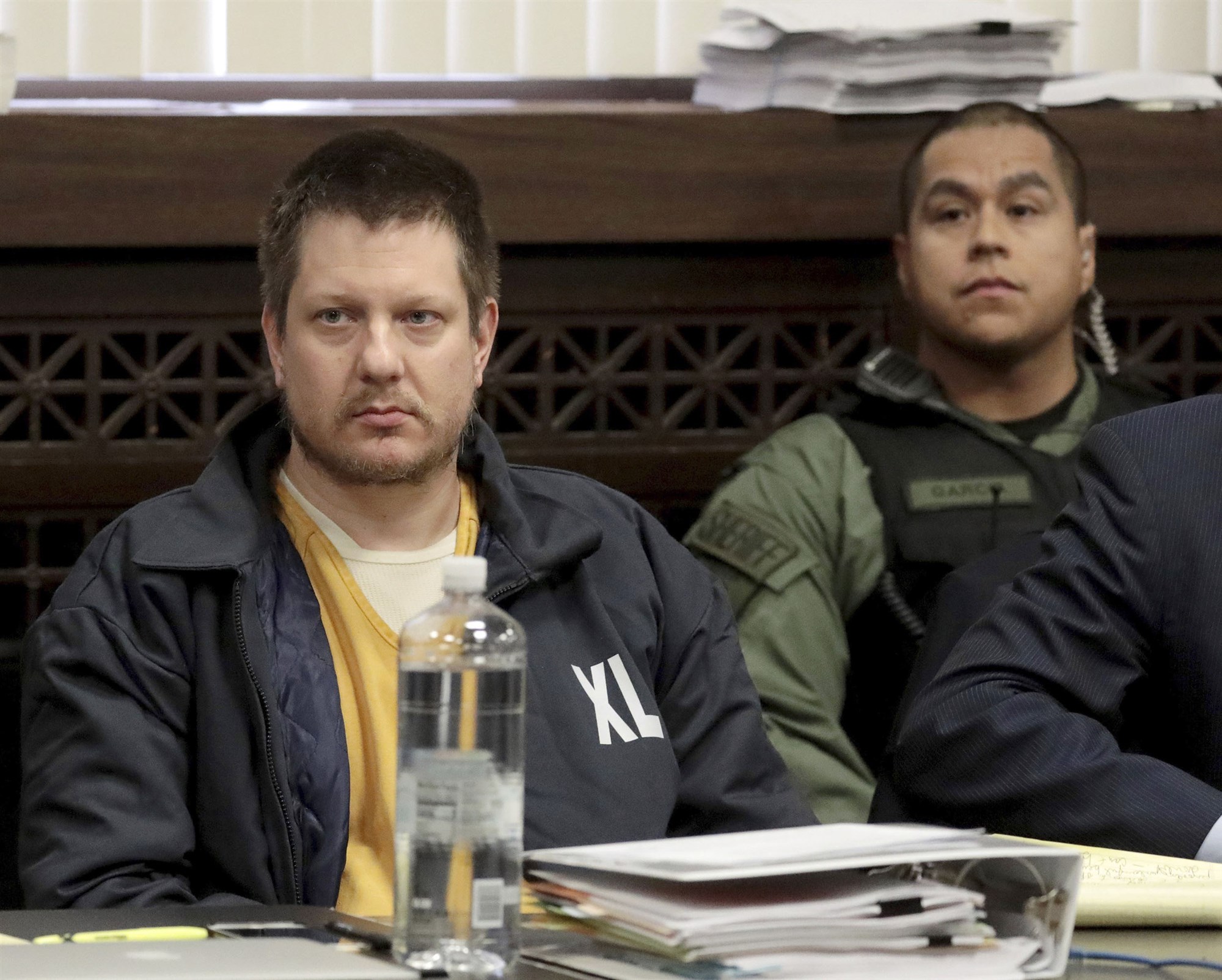In a letter to the judge, Van Dyke’s wife wrote that he was “convicted by the court of public opinion a long time ago, way before the trial.”
CHICAGO — Prosecutors are recommending that the former Chicago police officer convicted in the 2014 shooting death of black teenager Laquan McDonald be sentenced to at least 18 years in prison and a defense attorney is urging the judge allow the officer to be released on probation.
In documents filed this week in anticipation of Friday’s sentencing of Jason Van Dyke, the arguments display widely divergent interpretations of the state’s complex sentencing formula, a reflection of the struggle that legal experts have had in trying to determine the sentence the white ex-officer might be facing since a jury found him guilty of second-degree murder in October.
The jurors also convicted the 40-year-old Van Dyke of 16 counts of aggravated battery with a firearm — one for each shot that hit the 17-year-old McDonald. They opted for a conviction of second-degree murder rather the first-degree murder, which had been available to them. A first-degree murder conviction would have carried a maximum sentence of life and — factoring in enhancements for having used a gun — a mandatory minimum of 45 years in prison.
The punishment for second-degree murder is no less than four years behind bars but no more than 20 years. Each count of aggravated battery carries a mandatory minimum of six years in prison and a maximum of 30 years. If Van Dyke had to serve six years for each of the 16 counts — and do so one sentence after another — that would add up to 96 years.
In his brief filed Monday, Special Prosecutor Joseph McMahon argues that Cook County Judge Vincent Gaughan could potentially sentence Van Dyke to 96 years if he finds that all 16 bullets that struck McDonald on the night of Oct. 20, 2014, caused “serious bodily injury.” But the prosecutor says that even if he agrees with the defense that “at least two of the shots fired by the defendant were fatal,” the minimum sentence should be 18 years.
“Any count for which this Court makes a finding of severe bodily injury is subject to a mandatory consecutive sentence,” wrote McMahon, meaning that if Gaughan determines six shots severely injured McDonald then those minimum six-year sentences must be served back to back.
Defense attorney Dan Herbert argues that if the judge sentences Van Dyke, who has been in custody since his conviction, on the second-degree murder charge then he should put Van Dyke on probation. But, Herbert said, that if he chooses to sentence the former officer for aggravated battery then he should impose the minimum sentence. Herbert doesn’t say in his filings what that sentence is, but the minimum sentence for that charge is six years in prison.









